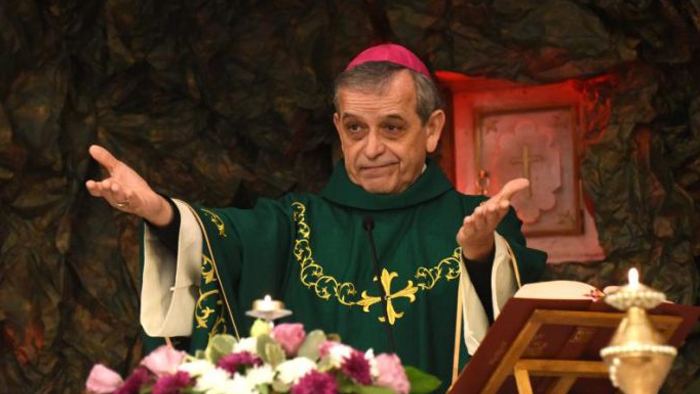JIFNA, West Bank – Building walls, whether between Israel and the Palestinian territories or the United States and Mexico, can only serve to separate people and create more isolation, said Auxiliary Bishop Eusebio L. Elizondo of Seattle.
“Walls can’t bring any positive aspect to any country,” he said Jan. 21, during a visit to this West Bank village. “The image is very negative. ‘I am keeping you out of my life.’ … It creates more resentment and isolation. It makes it impossible to see the other.”
Elizondo was among 10 Hispanic U.S. bishops visiting the Holy Land and meeting with Israelis and Palestinians to get a better understanding of the Holy Land situation and to advocate for “bridges not walls.”
The bishop said he had returned to the Holy Land for the first time in 30 years and had been disappointed by the feeling that the situation had gotten worse rather than better.
“It is a tragic feeling coming to the Holy Land,” a place which for centuries has not had peace, he said. “It is a long process. A very slow process. I praise and pray for people in that process, but you have to be ready for martyrdom all that time. We humans are very slow learners.”
While acknowledging that terrorist violence was one of the push factors for the creation of the Israeli separation barrier – which includes a series of 25-foot cement walls and fences and is expected to extend more than 400 miles – Auxiliary Bishop Arturo Cepeda of Detroit said the whole use of the concept of walls prevents people from “seeing the other as a human person.”
“If we are not able to see the other as a human person, we are missing the point of who we are. The message is that this is about people, it is a human crisis … the challenge is what is the most effective way to communicate this,” he said. “This is a human crisis. In our USA, we are facing a very, very hard human crisis, which is our immigrants. It is a terrible crisis.”
Source: Crux News


